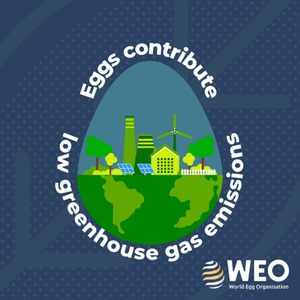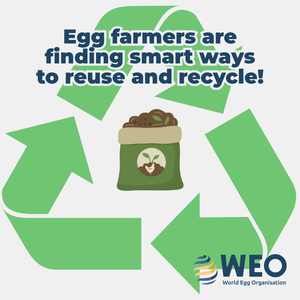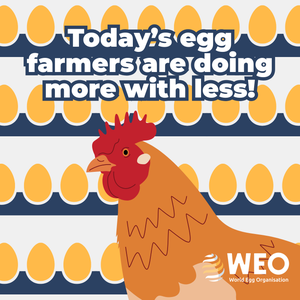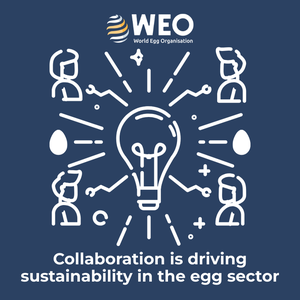Eggs: Naturally Sustainable
The simple, sustainable choice this World Environment Day
30 May 2025
This World Environment Day, we are cracking open the facts about one of nature’s most planet-friendly foods, the egg!
Not only are eggs packed with goodness for your body, but they are also doing good for the Earth. From how they are produced, to how they support sustainable food systems, eggs are a small food making a big impact!
Eggs as an environmentally responsible choice
Eggs are one of nature’s most efficient foods, requiring fewer resources than other farming practices. They play a key role in sustainable diets by offering a nutritious, low-impact food option.

Research shows1 that eggs contribute relatively low greenhouse gas emissions, helping to reduce the environmental impact of our diets. As a result, eggs are increasingly recognised as a key component of sustainable eating patterns 2 that support both human health and the health of the planet.
Efficient farming practices
The egg industry continues to improve its farming practices, using innovative technology and circular agriculture principles to reduce waste, conserve water, and lower carbon footprints3. For example, food by-products like biscuit crumbs can be repurposed as poultry feed4 helping to reduce waste across the wider food system.
In addition, the natural manure produced by hens can be used as fertiliser in some regions, reducing the need for synthetic alternatives and contributing to healthier soils. These sustainable practices allow egg production to be part of a more circular and resource-efficient agricultural model.5

Eggs enable reliable, environmentally resilient food systems
Eggs play a valuable role in creating stable and efficient food systems that can withstand environmental pressures while meeting global nutritional needs. With their long shelf life, and ability to be produced year-round in diverse environments6, eggs are a sustainable food choice that supports both people and the planet.
Their versatility also makes them a practical choice for reducing food waste at home and throughout the supply chain. Thanks to their efficient production, eggs can be produced with relatively low resource use, making them a sustainable option that supports local food systems and contributes to food security.

Commitment to sustainability in the egg industry
The egg sector is dedicated to enhancing sustainability across its supply chain, focusing on reducing emissions, improving farm efficiency, and promoting renewable energy use in production7, 8, 9.
Collaboration is also a key part of this effort, with industry organisations sharing knowledge and best practices to help producers around the world continue improving their environmental performance. From farm to fork, the sector is committed to driving progress and protecting the planet for future generations.

This World Environment Day, make a simple, planet-friendly choice. Add eggs to your plate and support a more sustainable future.
References
1 Hannah Ritchie, Pablo Rosado, and Max Roser (2022)
3 Grassauer, V. Arulnathan, N. Pelletier (2023)
4 Patil, Nilakshi & Sidhu, Jujhar & Hundal, Jaspal & Kaur, Jasmine. (2024)
5 Egg Farmers of Canada (2022)
6 Food and Agriculture Organization of the United Nations (FAO)
8 British Eggs Industry Council (2023)
Spread the word!
The WEO has developed a social media toolkit to help you celebrate World Environment Day 2025 with eggs. The toolkit includes specially made sample graphics, video and post suggestions for Instagram, Facebook and X, all ready to be downloaded and shared!
Download the World Environment Day toolkit (English)
Download the World Environment Day toolkit (Spanish)